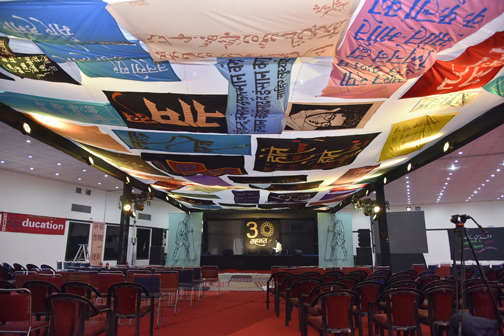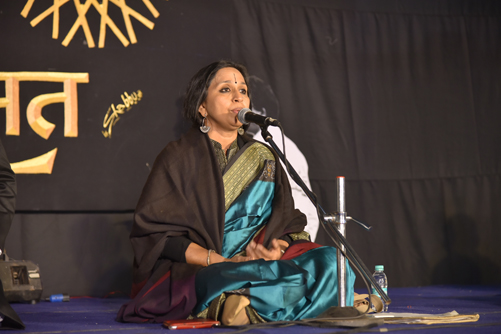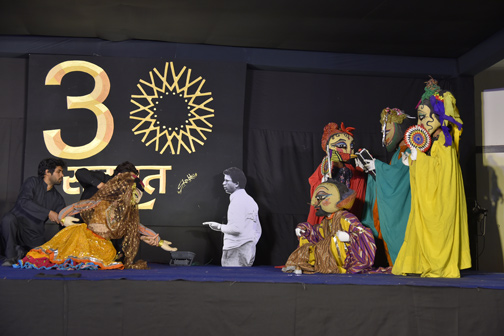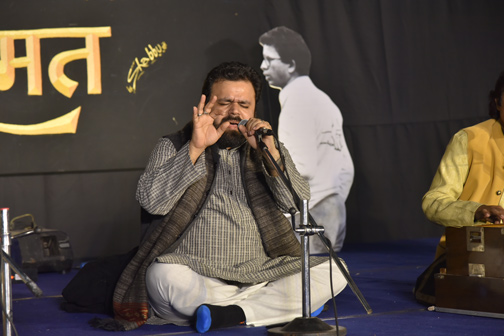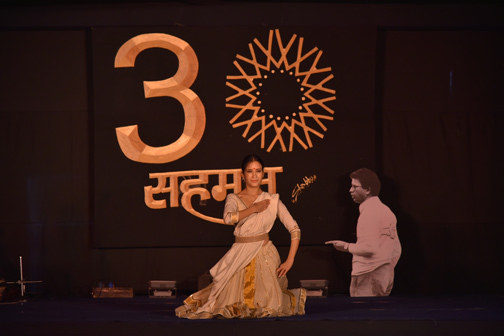SAHMAT CELEBRATES 3 DECADES OF ITS FOUNDATION
Thirty years ago the well-known political activist and a stalwart of street theatre Safdar Hashmi was brutally attacked while he and his colleagues belonging to the street theatre group Jan Natya Manch, were performing a play in a worker's colony near Sahibabad. Hashmi was not able to survive the brutal assault and he succumbed to his injuries twenty-four hours later on 2nd January 1989.
The brutal attack on this young street theatre artist which resulted in his death lead to a series of protests in different parts of the country by artists, intellectuals, students as well as workers of different hues. One of the most important outcomes of these protests was the establishment of SAHMAT or the Safdar Hashmi Memorial Trust. Formation of SAHMAT was in a way a spontaneous and an organic response to the uncalled for death of a young political soldier who was committed to the ideals of democracy and secularism. SAHMAT in its thirty years of existence has played an important role in bringing together people from different walks of life including artists, intellectuals and students on a single platform. And in the process it has re-affirmed time and again its commitment to upholding the principles of Indian Constitution including those of secularism and freedom of expression. And those people who value such ideals certainly look forward to the 1st of January when SAHMAT remembers and celebrates the life of Safdar Hashmi.
Like every year this year too SAHMAT chose to highlight through various means the socioeconomic and political developments that had grabbed the headlines in the year gone by.
The proceedings of the evening began with a short skit by the street theatre group BIGUL. The act titled ‘JUMLA’ was, besides being entertaining extremely thought provoking. Basically a satire the performers through ‘JUMLA’ tried to throw light on the issues that have wreaked havoc in the society since the BJP led NDA government has come to power. The act was a report card of a different kind in that it highlighted the policies of the present government that have created problems in the past four and a half years not just for the deprived sections of the society but also minorities as well as intellectuals. Conceived and directed by Krishna and performed by a cast of talented young people including Aadya, Amitabh, Richa, Sachin and Umesh the play indeed set the tone for the evening.
As the evening and became more chilly a slew of riveting performances by Dadi Padumjee, Sumangala Damodaran, Saif Mahmood, Shivani Verma, Astad Deboo, Vidya Shah and Madan Gopal Singh took place. While Sumangala Damodaran, known for her rendition of IPTA songs sang a range of revolutionary songs composed in different Indian languages including Hindi, Telugu and Malayalam. Dadi Padumjee, a leading puppeteer of India and the founder of the Ishara Puppet Theatre Trust too enthralled the audience by putting up an exceptionally well crafted puppetry performance. The well-known Kathak exponent Shvani Verma in her turn put up a splendid performance of her by now popular production ‘Champaran se Bapu’. The performance highlighted the political life of Gandhiji from his early days of agitation in Champaran where in 1917 he addressed the indigo cultivators’ grievances to his last hours in Delhi in 1947. The importance of Champaran, it may be mentioned in the passing also lies in the fact that it was the place where Gandhiji tested for the first time the political tool of Satyagraha. Saif Mahmood recited poetry composed by him as well as by other well-known poets. Almost all the poems he recited focussed centred around the twin themes of revolution and freedom. The final performance of the evening was by Madangopal Singh. In his melodious voice Singh sang a range of heart touching songs belonging to different strands of Suifism.
The organizers also did not forget to remember and pay homage to those Hindi authors and political activists who passed away in the year gone by. Among those to whom homages were paid were Fahmida Riyaz, Mrinal Sen, Asma Jahangir and Gopaldas Saxena ‘Neeraj’ and others.
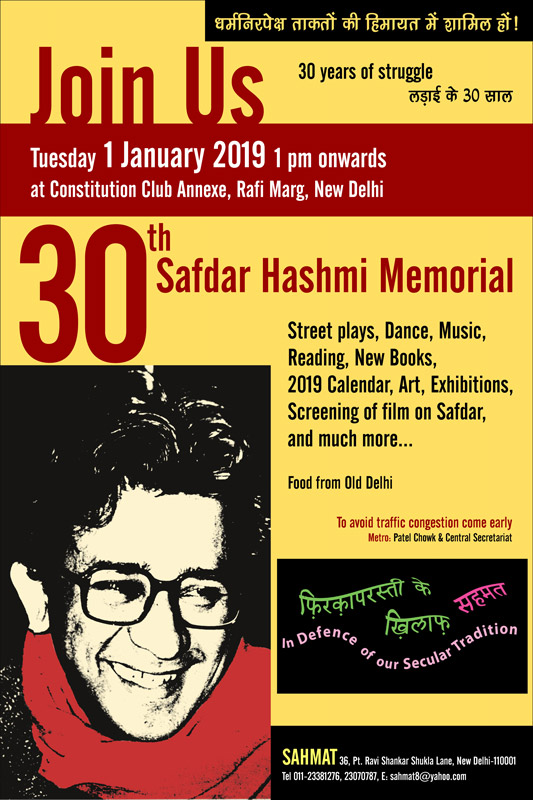
A book release too took place during the course of the evening. The book which is basically a collection of essays penned by eminent economist Professor Prabhat Patnaik is a translation from original English to Hindi. The book ably translated by Rajendra Sharma was released by Akeel Bilgrami. Besides the book a calendar commemorating the Jaliawalan Bagh massacre of 1919— a landmark event which changed the course of independence movement of the country— was also released. A set of hundred post cards carrying diverse images of Gandhiji drawn by such eminent artistes as Nalini Malini, Ram Kumar, Orijit Sen, Vivaan Sundaram, Atul Dodiya and Ghulam Mohammed Sheikh et al. was also released. Sketched by hundred different artistes the images in these postcards are their interpretations of Gadhiji and his philosophy. These images also address the issue of contemporary relevance of Gandhiji. The postcard set has been compiled by Rajinder Arora.
Yet another highlight of the event were the exhibitions addressing different themes which were put up. While Vibha Galhotra’s exhibition commemorated 150th anniversary of Gandhiji. Ram Rahman curated a photographer’s exhibition centring again on the theme of Gandhiji and B.R. Ambedkar. Two large scale charkhas made by Kanshka Prasad and Vertika Chaturvedi— so intimately associated with Gandhiji and his philosophy of Swadeshi—mde by Kanishka Prasad and Vertika Chaturvedi also found their place in the hall. Besides this another photo exhibition which was put was by Vijay Jodha addressed the issue of farmer suicide since 2015. The exhibition titled ‘First Witnesses’ was basically made up black and white images of women members of those families who’s male members have committed suicide because farmer distress. A closely related exhibition was that which addressed the farmer distress and the persisting problems in the agricultural sector. This exhibition titled Bread, circus and TBD was curated jointly by the artiste duo of Sumir Tagra and Jiten Thukral.
AMOL SAGHAR
